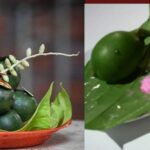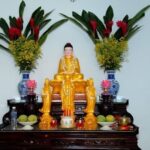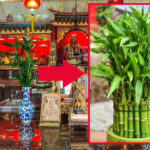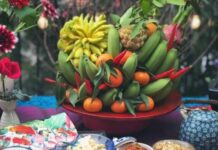In ancestral worship ceremonies, offerings typically include flowers, fruits, sweets, incense, betel, alcohol, and fake money. Bananas are considered an important offering fruit but are strictly forbidden when visiting and cleaning one’s ancestor’s tomb.
Why shouldn’t we bring bananas to tomb-sweeping?
Bananas are a distinctive fruit in Vietnamese worship practices. Most families include bananas on their altars during important ceremonies, especially during Tet, when a beautiful bunch of bananas is desired for the five-fruit offering.
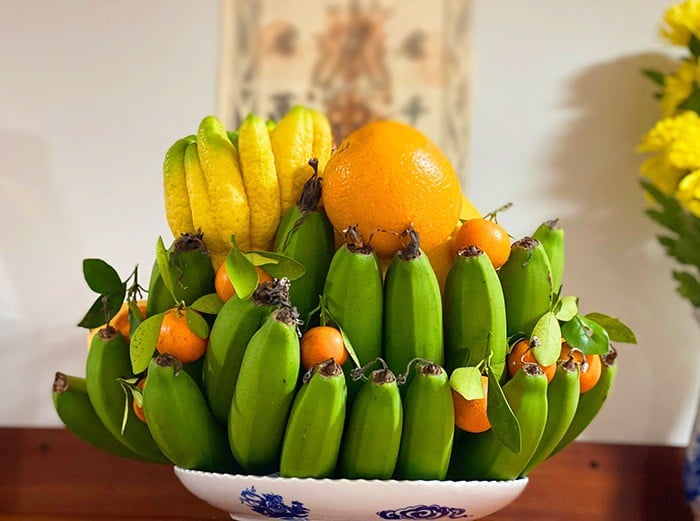
However, it is considered taboo to bring bananas when tomb-sweeping. According to ancient beliefs, bananas have an attractive nature. Thus, placing bananas on the altar attracts wealth and brings good fortune. Additionally, bananas symbolize unity, support, and protection. Nevertheless, during tomb-sweeping at the end of the year, hungry ghosts are also set free. As a result, bringing bananas to the cemetery might unintentionally attract negative energy and wandering spirits back to one’s home, potentially causing illness and misfortune to the family.
Therefore, during tomb-sweeping, our ancestors instructed their descendants not to bring bananas when visiting and cleaning graves in cemeteries to avoid inviting unwanted guests back to their homes.
Other taboos to avoid when tomb-sweeping
Tomb-sweeping is a beautiful cultural tradition, but it’s important to avoid certain taboos to prevent bad luck:
+ Dress modestly and appropriately when visiting tombs.
+ Refrain from laughing, mocking, or speaking loudly at other graves during tomb-sweeping. Avoid arguing, telling inappropriate stories, or making offensive or blasphemous remarks.
+ Do not step on or sit on graves.
+ Do not touch offerings on other people’s graves.
+ Ensure that you clean and wipe down the tomb thoroughly before and after your visit. Pay attention to cleaning every part of the tomb.
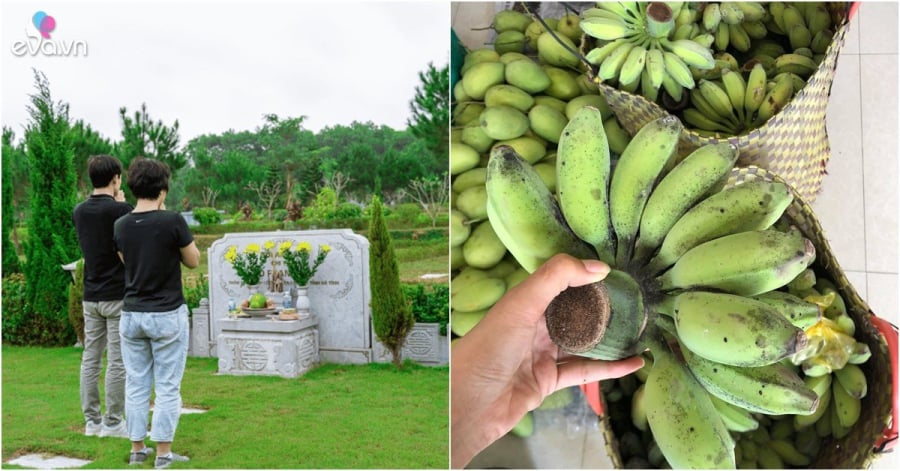
+ Pregnant women, children under three years old, the elderly, the sick, and women on their period should not visit tombs as they may catch a cold or fall ill due to the cold atmosphere.
+ Do not take photographs in the cemetery.
+ Avoid bringing home offerings from other people’s graves or taking anything from the cemetery, such as soil, flowers, or plants. These items absorb heavy negative energy over time, and bringing them home can disrupt the positive energy flow in your house. Therefore, remind children not to engage in such behaviors.
+ Do not clean or touch offerings on other people’s graves without permission, and refrain from commenting on or criticizing other graves.
+ Avoid visiting tombs too early or too late in the day, as the strong negative energy during these times can cause illness.
The Ultimate Guide to Buying Betel and Areca Nuts for Ancestor Worship: Uncover the Secret to Attracting Wealth and Prosperity
Chewing betel and areca nuts is an integral part of Vietnamese culture, often used as an offering during worship. However, not everyone knows the correct way to prepare and present these offerings. We are here to guide you through the process, ensuring your offerings are not only culturally significant but also perfectly prepared.
The Ultimate Guide to Cooking Catfish in a Pineapple Sauce: A Delicious and Hearty Meal for a Rainy Day
“A mouthwatering treat awaits! Get ready to indulge in a delicious masterpiece with this easy-to-follow guide to creating the perfect catfish braised in pineapple right in the comfort of your own home. Impress your taste buds and transport yourself to a tropical paradise with this unique and flavorful dish.”
The 5 Taboos of Altar Placement: A Guide to Preserving Wealth and Luck
The ancestral altar is the most sacred and revered space within a Vietnamese household, serving as a testament to the family’s devotion and respect for their ancestors. The placement of this altar is of utmost importance as it can bring about either positive or negative influences on the family’s well-being.


























